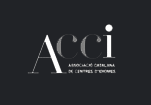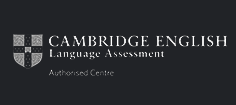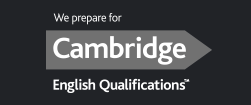News
-
Cambridge official exams results
Check how they went!
-
NOVA ESCOLA Cambridge School a MATARÓ
Incorporem Newlingua al nostre grup d'escoles
-
CASALS D'ESTIU 2025
Inscripcions obertes per a CAN SALA i HORTUS!
-
VIATGES I COLÒNIES EN ANGLÈS - ESTIU 2025
A Catalunya i a l’estranger!
How to ‘muscle up’ your English with specialised classes
Friday, 14 January 2022INTERVIEW with our student J. Aguilera and his teacher L. Wood
English is a language present in many different fields (in our culture, economy, politics...), and is also the language most used for business and higher education and research at an international level.
That’s why, once a high intermediate level of English has been achieved, there are students who want to focus on specific aspects of the language which they can apply to their profession, training career or even hobbies.
Through one-on-one tutoring or small group classes, students from certain professional backgrounds, business executives and university students decide to hone their English skills in thematic areas or for specific projects, as we explained in our article ’Tailor-made business English’.
Improvement can come in many ways, such as expanding vocabulary in a particular field or practicing presentations in English which is the case for our student Joan Aguilera Castells, a recent PhD graduate in SPORTS SCIENCE and professor at the FPCEE Blanquerna, Ramon Llull University of Barcelona. He chose Cambridge School to "muscle up" his English on his path towards achieving his PhD, from the moment he decided to go to complement his studies with a research project at UWS University in Glasgow until he presented his Doctoral Dissertation at the FPCEE Blanquerna in English.
Here we interview him and his teacher Lindsay Wood from Cambridge School Sant Celoni.
THE INTERVIEW:
1. Joan, your professional speciality is SPORTS SCIENCE. How did you come up with the idea of perfecting your English by focusing on this area?
In fact, the idea came from my PhD supervisor who encouraged me to improve my English in order to be more confident and fluent in oral presentations and also to achieve better writing skills. And so, following the advice of my PhD supervisor, I decided to do one-to-one classes at Cambridge School Sant Celoni.
2. What aspects did you work on most in class?
The main aspects I have worked on in class have been vocabulary, pronunciation and grammar. These aspects have been put into practice through speaking activities.
3. What was it like studying English with a teacher who is not a specialist in your field?
I have been lucky that my teacher Lindsay Wood knows the terminology and the types of research I have developed during the PhD programme, because she has a BSc, in Nutrition and Dietetics and some of the aspects of the professional area of Sports Science are common with Nutrition and Dietetics. On the other hand, my teacher asked me for some papers to refresh both the structures used in writing scientific papers and the specific terminology. In addition, if during the lessons there was a concept that was confusing, I would define it, which helped me to improve my speaking. Working with Lindsay Wood was very easy and I had no problem with the fact that she was not a specialist in Sports Science, she is a specialist in what I needed to improve, English.
4. What did you find easiest?
The flexibility to combine face-to-face and on-line classes and to adapt around my work schedule.
5. And most difficult?
The most difficult part was the grammar, phrasal verbs and idioms. However, different teaching-learning strategies such as quizzes and self-correction have helped me to improve these three aspects.
6. How did the emergence of COVID affect your English classes?
Honestly, COVID did not affect my classes. After the last face-to-face class and we went into home confinement, Lindsay suggested we moved to on-line classes and I accepted the proposal because it was a very appropriate solution and the only way to continue doing English on a weekly basis. The fact of offering an on-line mode has given me a lot of flexibility to be able to combine the classes with my work schedule. I can do face-to-face classes at Cambridge School and occasionally do an on-line session.
7. Did the classes have a practical application?
Yes, they have had a lot of practical application. They have allowed me to make two contributions to the European Congress of Sport Sciences (ECSS) in scientific poster format and oral presentation, to develop a research project at the UWS in Glasgow where I could use English both in everyday situations and in the academic environment and finally to write the doctoral thesis and to defend it to achieve the international PhD mention.
8. Were you also able to use what you learned in the classes abroad?
Yes, as I mentioned before, in order to develop the research project at UWS I spent three months living in Glasgow and using my English. I put into practice the skills I’d learnt at Cambridge School and the experience was very satisfying and highly recommended for anyone who wants to challenge their English.
9. Have you seen a result of doing the classes?
Absolutely! I have successfully applied and transferred the contents of the classes to the professional field, in this case, the publication and scientific dissemination in Sports Science.
10. How would you summarise the one-on-one English experience?
I would summarise it as a unique experience where I could choose the length of the sessions, adapt the classes to my work schedule and combine face-to-face and virtual classes. In addition, the clear advantage is that the one-to-one format individualises the content and makes the classes highly applicable to the learning style and professional needs of the student.
And finally, a couple of questions for Lindsay, his English teacher.
- Lindsay, what are English classes like when focused on specific vocabulary and technical knowledge?
For the first 2 or 3 classes the teacher’s role is to find out as much as possible about the subject the student is specialising in and try to get a basic understanding of it. By doing so, the teacher is more able to guide the student in the right direction. Other than that, the same rules apply to general English classes, work on fluency and accuracy in speaking, correcting any grammatical or vocabulary errors and teaching new concepts.
- What did you find most difficult?
The most difficult thing for me was some of the specific sports terminology. I have a BSc. in Nutrition and Dietetics so I was familiar with a lot of the scientific terms and types of research Joan was doing but it’s been a good few years since I finished my degree so I found myself having to refresh my memory a lot.
- And the easiest?
Correcting pronunciation. It’s something we worked on quite a bit during the course, especially for the final presentation and Joan was very happy to be corrected and always took on board my recommendations.
- Any advice for Joan?
Don’t stop studying English and try to sit an official exam such as the Cambridge IELTs in the future.
From Cambridge School, we thank Joan Aguilera and his teacher Lindsay Wood for this interview.
If you are interested in learning more about the possibilities of one-to-one English classes, we recommend reading our article ‘Tailor-made business English”






.png)



 Tel. 93 655 05 58
Tel. 93 655 05 58 Enviar WhatsApp
Enviar WhatsApp



![[...]](https://www.cambridgeschool.com/xtra/imgs/loading.gif)